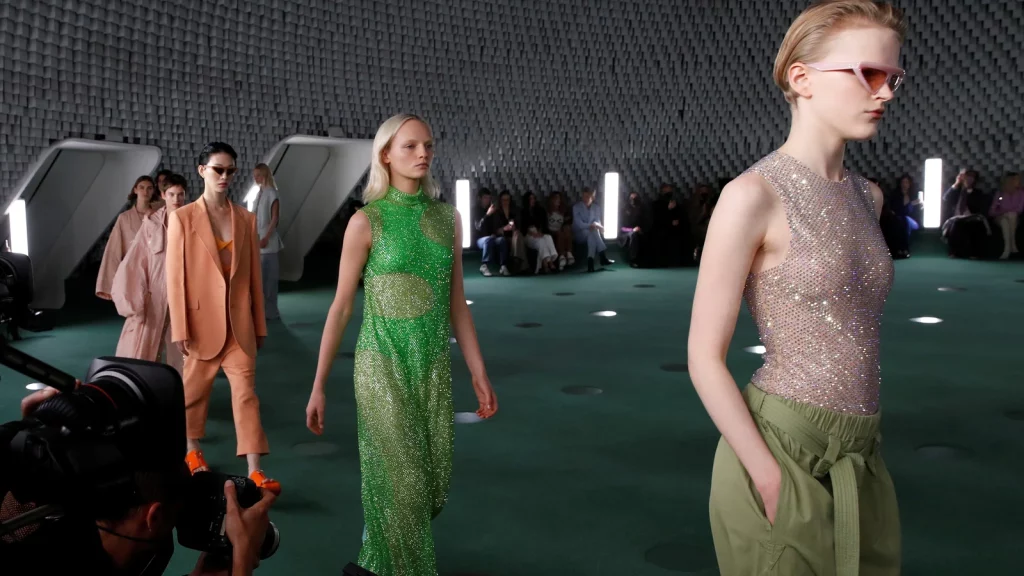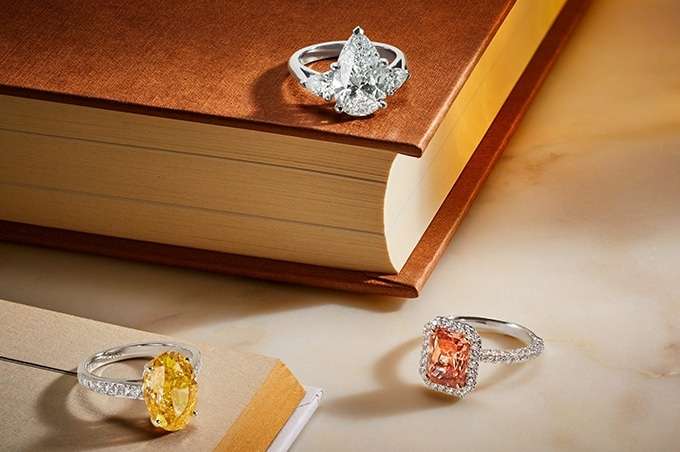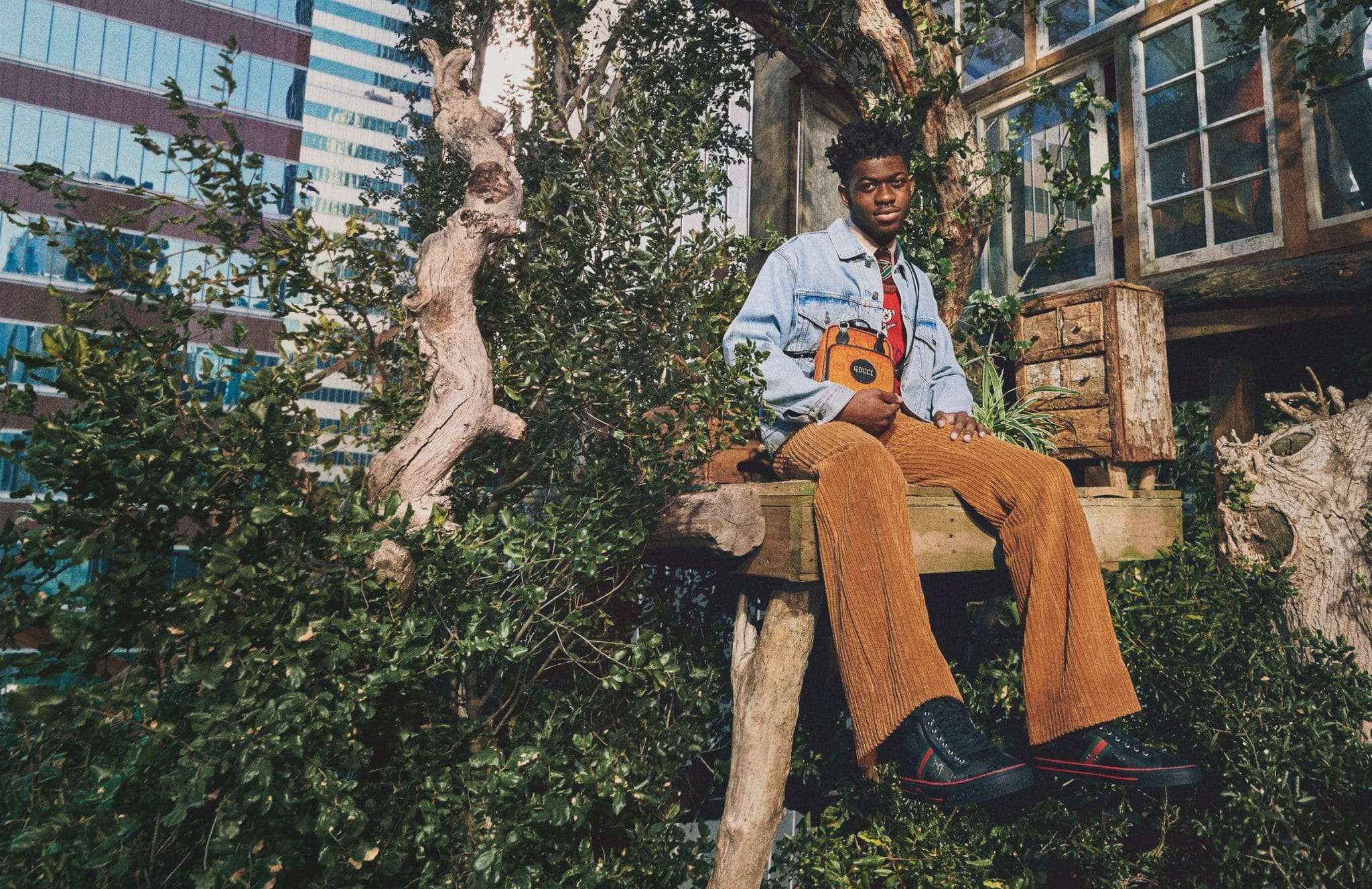Sustainability is driving growth in the luxury market, according to a new report from Deloitte.
Luxury brands saw declining sales amid the second year of the pandemic, says Deloitte’s annual Global Powers of Luxury Goods 2021 report. Sales for the world’s top 100 luxury goods brands declined from $281 billion to $252 billion. But transparency around sustainability efforts is highlighting a way forward, says Deloitte, which cited “new paradigms of value creation” as key to industry resiliency.
“Over the past year and a half, consumers and companies have been adapting to a new way of living and their outlook on luxury goods may be undergoing change,” reads the report. “There is growing awareness of environmental concerns and the need for sustainability in how goods are produced and used. Luxury goods companies are responding positively by focusing more on sustainability in the design and production of luxury goods, and at the same time are accelerating the adoption of digital solutions to engage with consumers and deliver luxury shopping experiences using technology. Even though the industry is returning to live events and in-store sales, both sustainability and digitalization now feature more prominently in their strategies for the future.”
Among the world’s top 100 luxury goods brands, the top ten generated more than 50 percent of revenue for the entire list. The top ten list includes LVMH, Kering, Estée Lauder, Richemont, L’Oréal, Chanel, EssilotLuxottica, PVH, Hermès, and Chow Tai Fook Jewellery Group.
“As they seek new ways to connect with their customers, they are changing their approach and mindset by incorporating sustainability and digitalization into their long-term strategies, to align with consumers’ demands and new regulatory requirements,” the report notes.
Sustainable luxury
According to Deloitte, the luxury industry is in the midst of “extensive change.”
“What were previously choices of product design of just a few environmentally conscious and courageous innovators, are now moving closer to the mainstream, involving almost all the companies in the industry,” the report notes.
This shift is driving luxury goods companies toward adjusting approaches and mindsets to align with consumer demand. Earlier this year, Stella McCartney, the first luxury label to call itself vegan, launched the first garments made from mushroom leather produced by San-Francisco’s Bolt Threads. Its Mylo leather features in McCartney’s Frayme handbag that debuted at Fashion Week in September.
Hermès also announced its first foray into vegan leather with its own mushroom leather collaboration with MycoWorks earlier this year. The company secured an exclusive partnership for its Sylvania travel bag made from the mushroom leather.

Gucci continues its sustainability efforts with its Off the Grid collection and increasing its use of leather alternatives. The Kering company’s sister brand, Yves Saint Laurent announced it was dropping fur earlier this year. It also partnered with Cartier for the first sustainability initiatives in the luxury watch and jewelry sector.
LVMH saw the first vegan, sustainable unisex sneakers from Louis Vuitton, as well as the brand’s sustainability logo, designed by Virgil Abloh. On the beverage side, Moët Hennessy launched a €20 million sustainability research center focused on research into microbiology and biotechnology, as well as efforts to protect against climate change, and improved recyclability.
Secondhand sales, a Deloitte prediction last year, continue to boom with platforms like The RealReal, ThredUp, and Vestiaire Collective seeing continued growth and innovation. One of the biggest categories in the secondhand market is luxury watches. Platform WatchBox is now valued at more than $1 billion, and has earned investments from a number of high profile names including NBA legend Michael Jordan.
But some of the biggest growth is happening in the luxury skincare segment. Estée Lauder saw 13 percent year-on-year growth, according to the report, even despite declines in makeup and fragrance sales as the pandemic kept people home.
A sustainable future
The findings also point to the use of technology and biomaterials to develop sustainable textiles and innovations across the industry. Technology includes gamification and NFTs as two driving forces for the sector’s growth.
“Increasing numbers of luxury products are labeled ‘sustainable’, and the industry is now accustomed to concepts like ethical fashion (production methods, working conditions, and fair trade); circular fashion (recycling, upcycling, and thrifting); slow fashion (sharing, renting); and conscious fashion (eco-friendly and green fashion),” the report explains.

The findings come on the heels of a recent report by luxury diamond brand De Beers. That report found that more than 33 percent of consumers rank sustainability as more important than price or design when making luxury jewelry purchases. More than half of the respondants said they’d be willing to pay as much as a 20 percent premium for products sourced sustainably and ethically.
For the luxury sector at large, these purchasing habits are top of mind.
“Luxury goods companies are setting environmental targets for the future, with offsetting carbon emissions as a priority. An imperative is to find new ways to be more sustainable, in design, production, distribution, and communication,” reads the report.
“Given the changes in the luxury industry over recent years, it’s clear that sustainable luxury—promoting environment and social responsibility—is here to stay.”


